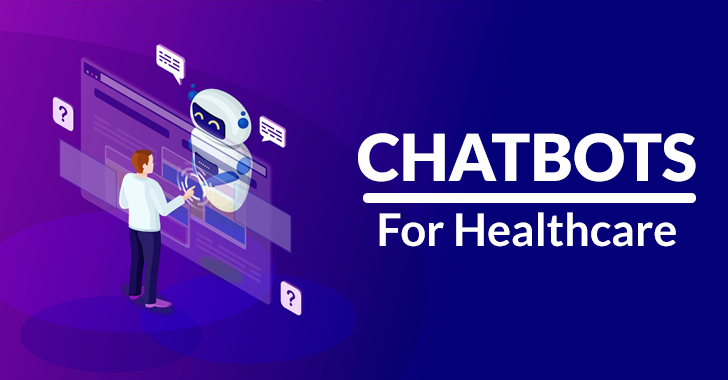
Chatbots for Healthcare: Use Cases and Development Prospects
Over the years, technology has constantly evolved to meet the needs of many industries. Whether it is fintech or healthcare, technology features such as chatbots are consistently used to improve people’s lives.
Today, an AI chatbot for healthcare offers diagnosis, symptoms, mental healthcare consultation, and many more. Do you know that WhatsApp teamed up with a world health organization to make a chatbot that answers questions about Covid-19? This is just one of the chatbot healthcare use cases. But there’s more. Learn more!
Table of Contents
AI Chatbots For Healthcare: Why Are They Important?
The research was carried out in 2019, and some of the most valuable things about using chatbot technology in healthcare were enumerated. Here are some of them below.
- Anonymity
One of the best things about artificial intelligence healthcare chatbot systems is that they can keep the patient anonymous. This way, patients can share sensitive information without fearing the information being leaked. This is especially useful for sensitive mental health issues.
- Monitoring
Doctors are human and hence cannot be with their patients 24/7. This is where a medical chatbot app can become invaluable. Using these chatbots, doctors can monitor and track their patient’s behavior. The chatbots can track anxiety and encourage the patient to develop better healthy habits.
- Real-Time Interaction
Chatbots play a significant role when it comes to real-time interaction. With chatbots, patients are always sure to get answers on time. The chatbots can give notifications, responses, and reminders.
- Personalization
Chatbots are great for personalization. However, the level of personalization depends on the type of application. While some apps allow for more personalization, some don’t. Some applications use the patient’s behavior via facial recognition and physical vitals such as oxygenation, heart rhythm, and body temperature.
- Scalability
Scalability is the ability of the chatbot to interact with many people at the same time. This is especially important during a pandemic when misinformation can spread very quickly. So, some companies make use of chatbots to address citizens at the same time. Click here to read more about how WHO used scalability during the Covid-19 outbreak.
Top Chatbot Use Cases in Healthcare
Below are some of the everyday use cases of chatbots in healthcare:
1. Provision of Medical Information
The algorithms of chatbots are trained using a massive amount of data. This includes disease symptoms, markers, diagnostics, and available treatments. The chatbots are continually trained using public datasets. Some of the public datasets are Covidx which was used for Covid-19. The Wisconsin Breast Cancer Diagnosis is also a shared dataset that teaches chatbots.
The chatbots used for conversation have different levels of intelligence. The ones with higher levels of intelligence can understand the question of the users and provide them with the needed answers. The chatbots’ solutions are based on predefined labels during data training. For example, click here to see this app that gives you information about different symptoms of diseases, an assessment of your overall health, and tracks your progress.
2. Scheduling of Medical Appointments
Chatbots are usually placed into the database of many medical facilities. The chatbots are integrated to get information about suitable doctors and health care professionals. It also conveys information about the available slots in the clinics and their working days.
These chatbots can also ask the patient about their current health care status and then link the person up with the appropriate professional. So, if you are having problems with your tooth and you inquire about a chatbot, the application will most likely match you with a dentist. It can also schedule, reschedule and delete the appointments of the patient. Some chatbots can be hooked up with the user’s calendars. When this is done, the chatbot will send updates and reminders about the patient’s appointments.
3. Patient Data Collection
Chatbots also play a vital role in collecting the data of a patient. This way, doctors don’t need to be the only ones doing the overwhelming task of collecting and keeping track of a patient’s data. The chatbots can extract information from patients by asking them simple patient questions. The questions will usually include the name, symptoms, address, insurance details, and the current doctor they are seeing.
The chatbots then use EDI to save the collected information in the medical facility database. This facilitates the patient’s admission, doctor-patient communication, and symptom tracking. The chatbots also do well when it comes to medical record keeping.
4. Handle Insurance Inquiries
Chatbots are great when it comes to providing issuance services. They also provide healthcare resources to the patient and members of insurance plans. Also, integrating RPA and other automation solutions allows chatbots to automate insurance claim processing. It can also help the patient to keep track of their healthcare billing.
5. Mental Health Assistance
Many chatbots are trained to help patients with cognitive behavior therapy(CBT). This is essential for dementia, anxiety, and post-traumatic stress disorder patients. It also helps patients that are on the autistic spectrum to train and improve their social skills for interviews. The users can talk to the chatbots using microphones, text, or cameras.
6. Prescription Refill
Chatbots perform well when collecting a patient’s name, contact information, current doctor, and last visit to the clinic. Furthermore, they are also excellent for getting prescription information. The chatbot can submit a request to the doctor of the patient. It also further alerts the patient when the prescription has been refilled.
This feature helps doctors monitor the patient’s prescription refill, helping curtail drug abuse. Also, the doctor can use the chatbot to determine when a patient doesn’t need to use prescription medication.
Final Thoughts
The future of chatbots in the healthcare industry is very bright. As the medical sector’s need for technology keeps increasing, AI chatbots for healthcare will continue to make deeper inroads into medicine and patient health care. These chatbots have proven over the years that they can be trusted to keep a patient informed for their most basic health care inquiries. Are you hopeful for the future of chatbots in healthcare? You should be!


